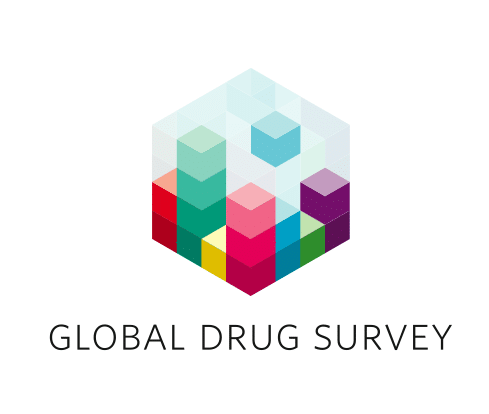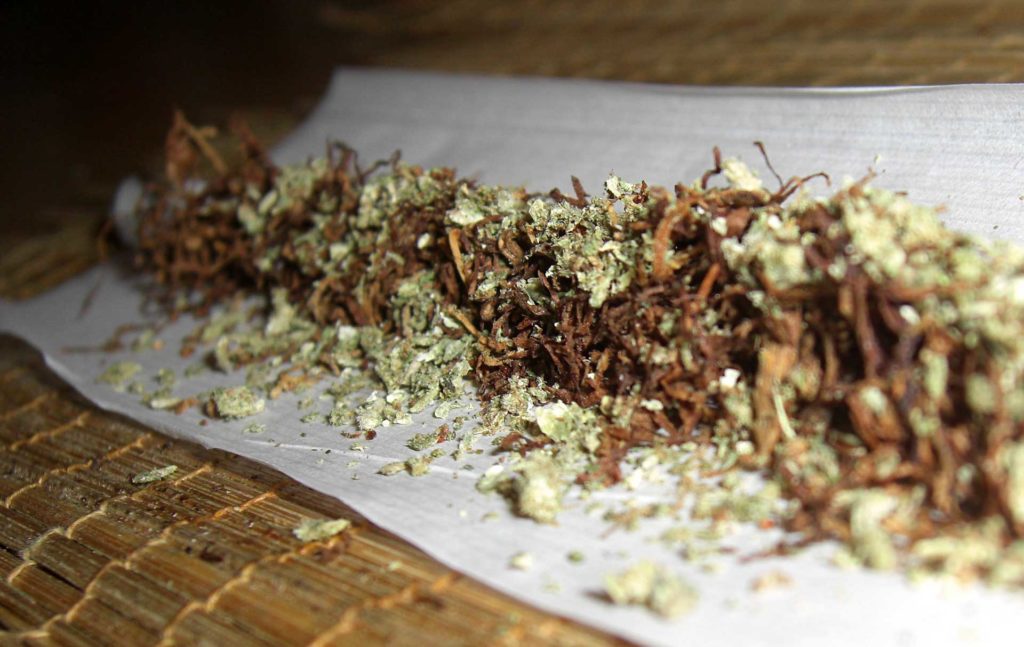Addicted to Weed: VolteFace Launches Black Sheep Report
A legal, regulated cannabis market would help prevent problematic use and give treatment options the radical revamp they need.

Psymposia is a 501(c)(3) nonprofit research and media organization that offers critical perspectives on drugs, politics, and culture. We rely on contributions from our readers and listeners. Your support is vital to sustaining Psymposia.
Support Psymposia’s independent journalism on Patreon and help us drive the Mystery Machine! We’re a bunch of meddling kids who are unmasking the latest shenanigans on the psychedelics beat.
VolteFace, London’s drug policy innovation hub, which launched in 2016, is all about bringing voices together to talk about drugs. Diverse (hearteningly and increasingly) in their perspectives, these voices form a united front sounding an incontestably righteous―and ever more academically and politically ballasted―mandate for drug policy reform.
Their latest report, Black Sheep: An Investigation into Existing Support for Problematic Cannabis Use (2017) by Lizzie McCullough, passes the mic to sociologists, healthcare providers, and 41 public survey respondents who have encountered problems with cannabis and/or the paucity of treatment options currently available in the U.K. It goes on to explain how a legal, regulated cannabis market would help prevent problematic cannabis use in the first place, and make it possible to give current treatment options the radical revamp they need.
The contributors list reads like something of a U.K. harm reductionists’ red carpet, with insights from the Global Drug Survey founder Dr. Adam Winstock, Jonathan Leibling of the United Patients’ Alliance, Claire Brown, Editor of Drink and Drugs News, Paul Hayes of Collective Voice, and academics including Prof. Harry Sumnall (substance use), Dr. Mark Monaghan (criminology) and Ian Hamilton (mental health). Black Sheep also draws on the experiences of innovators delivering grassroots harm reduction initiatives, such as Nick Hickmott of Young Addaction, whose recent piece for VolteFace poignantly delineates the insidious subtlety with which cannabis use can become, and latterly be perceived as, problematic: “I posed the quandary to [three teenage boys] that the last thing they wanted was to look back at their summer and say to each other ‘the only thing we did for three months was sit on Chris’s sofa.’ They glanced [sheepishly] at each other before one of them blurted out, “Shit. That’s exactly what happened.”

Stark Reality, with Statistics
When collecting the results of the Global Drug Survey 2017, Black Sheep contributor Adam Winstock made a call to “stigmatized stoners” to submit their stats. “With about one third of the adults in many countries that will take part in this year’s Global Drug Survey having only ever used cannabis, it’s also pretty likely that most people know someone who has used cannabis and who was probably pretty normal.” So why is it that, according to would-be practitioners catering to those experiencing problems with cannabis, “we’re just fumbling around in the dark trying to find them”?
If you’re new to harm reduction, the GDS is the biggest global survey collecting data on drug use. Its results reveal emerging trends and―sometimes surprising―patterns in drug use, and these help harm reduction practitioners worldwide to come up with initiatives that can save lives, such as MixMag’s highly successful “don’t be daft, start with half” campaign, which was created in response to last years’ finding that although MDMA in both pill and crystal form is being manufactured at ever-increasingly lethal strengths, clubbers in the U.K. consume more of it than any other nation. Vital data that saves lives; bookmark the link and fill it in next year. The Black Sheep report ultimately advocates a more holistic, inclusive approach to the health-based and psychological problems faced by a proportion of cannabis users, which focuses on resolving the issues they face, rather than singling patients out by their drug of choice, so I―only very slightly―digress.
According to Black Sheep, problems arising from cannabis use in the U.K. affect some 2.6 percent of adults. In order to comprehend the extent to which people experiencing problems with cannabis are woefully ignored by the media spotlight―and consequently hidden from our collective awareness and the consequent charitable and medical support that this tends to drum up for an ailment du jour―think about the fact that this figure is double the percentage of people in the U.K. suffering from dementia. As a case in point, I’ve hyperlinked a list of high-profile charities, two of which make the U.K. government’s current “Top Ten.” The crop of relevant Google results harvested by searching for “problematic cannabis use charities U.K.” is, needless to say, comparatively sparse.
As Dr. Chris Ford, the clinical director of International Doctors for Healthier Drug Policies, pointed out during the debate, whether one is seeking to use or provide treatment facilities, money talks. So, financially, this exploration of how to breathe new life into the treatment toolkit for people facing problems with cannabis use has come “at almost the worst possible time: no healthcare provider or nurse will take up a cannabis-based problem without significant financial remuneration.”
But, with cannabis users being the most likely to show little or no improvement at their six month review (bar opiate users) and only 5.5 percent of people showing signs of cannabis dependence having accessed cannabis-associated healthcare in the past six months, the U.K.’s provision of cannabis related healthcare, and the policy framework in which treatment options can be delivered, are both in need of a drastic overhaul.
With a launch on February 7th, 2017 at the VolteFace HQ, this timely Black Sheep report burst befittingly into the existing discourse on cannabis-related healthcare flanked by a panel featuring some suitably strident voices. The debate was chaired by Dr. Suzi Gage, the psychologist and harm reductionist behind the brilliant “Say Why to Drugs” podcast series, which explores one drug per episode, focusing on its harms, potential benefits, and current use trends (“no hype, no spin, no judgement: just information.”) “Say Why to Drugs” commendably ignores the arbitrary, flexible classifications of legal and illegal substances and, as such, the second episode is devoted to tobacco.

Unpacking the Joint: Cannabis-Related Harm Reduction Vs. Smoking Cessation
One of the many ways in which the U.K.’s harmful and antiquated drug policies have earned us distinction is our status as the only country where cannabis is routinely―and most usually―consumed with tobacco. Rolling combined joints is a globally uncommon practice, which, according to Black Sheep, reliably begets unnecessary tobacco addictions. This analysis was backed up anecdotally at the report launch by of one member of the panel, Zaki Solosho, filmmaker and successful overcomer of problematic cannabis use.
If we unroll a metaphorical spliff, (let’s choose one that hasn’t been mixed very well), and lift out the illegal cannabis and the legal tobacco it contains to examine them in isolation from one another, we can see that, within the current policy framework, it is significantly easier to design and deliver initiatives that reduce the specific harms associated with tobacco, rather than those associated with cannabis.
Cannabis use and tobacco-smoking can all too often be unhelpfully lumped together in a medical context, a pervasive theme in both the report and debate. Addressing both addictions together has the potential to lead to beneficial overall outcomes. Black Sheep advocates that “those quitting tobacco should also be encouraged to cut down on their cannabis use.” But the flipside of amalgamating cannabis and tobacco treatments within the current policy framework includes the risk that the patients’ cannabis-related problems may be ignored by G.P.s and that tobacco smoking cessation advice may be the sole treatment offered.
Zaki introduced himself charmingly as “the real black sheep of the panel […] I’ve been a stoner most of my adult life.” Somewhat exotically bringing a personal perspective on problematic cannabis use to the debate as he related his successful journey towards overcoming dependence, he reflected that, “smoking [cannabis] without tobacco is a completely different high.”
With or without tobacco, a “completely different high” each time is the consistent property that illegally grown cannabis can be relied on to produce. Illegal cannabis is bred for potency, and, when buying from street dealers, it is impossible to precisely predict the strength or intensity of its effects. Black Sheep draws on Prof. Valerie Curran’s research into cannabis, in which she suggests that, “if handled carefully from a harm‐reduction standpoint, a regulated market might…inform accurately about dosage and increase the availability of more balanced cannabis (that is, with lower levels of Δ9‐ THC and higher levels of CBD) to maintain desired effects while reducing the incidence of harms.”
Survey respondents also emphasize improvements in the quality of cannabis in making a compelling case for its legalization and regulation: “Do you think customers should buy super strength skunk made on the streets or organically, safely grown cannabis with varying strengths, allowing the consumer to make a healthy choice?” A healthy choice, or indeed an informed one, is not an option in our current legal framework, where the potency of cannabis and the veracity of online harm reduction advice are unregulated and coalesce to shroud cannabis users in an ever-increasingly-high-THC smog of confusion.
In contrast, Dr. Chris Ford refers to vape shops as the place to go if you want to see “real harm reduction in action.” The vaping industry, where sellers and buyers participate in the exchange of product-related knowledge as they transact, exemplifies the calibration of the harm-reduction culture that can be built around a legal drug. One of the conclusions that Black Sheep reaches regarding the best way to reach cannabis users who would benefit from their services is to provide initiatives that are “hidden in plain sight.” Perhaps this is an overly literal interpretation, but with my eyes newly opened by Black Sheep to the harm reduction possibilities, which, because of its legal status, are now afforded to those seeking to reduce the harms of tobacco, I counted six vape shops on my way home from the launch. (I also counted a similar number of adverts for alcohol, but the way drugs’ potential harms can be exacerbated once they make the transition to legality is an issue for another time.)
Chiming with Chris Ford’s observations about the harm-reductive ethos that is intrinsic to the vaping industry, Zaki feels that, “if I was smoking now, without tobacco, I would have had more control over it.” Also in step with Black Sheep’s findings about cannabis and tobacco, Zaki recounted a redundant appointment with a G.P., from whom he was seeking help quitting cannabis; “I was only offered help quitting smoking tobacco.” In periods where he’d tried to cut down on cannabis, Zaki noticed, “I just ended up smoking more cigarettes.”

Savviness, Stigma, and Skepticism: Cannabis Users’ Perspectives
Stylistically, Black Sheep is very immersive. The body of the text is laced with verbatim quotes―including a particularly chilling vignette providing an insight into surgery aftercare and its possible maverick permutations from cannabis-user Jacob, who describes a medical encounter that takes an alarming, and diametrically opposite trajectory to Zaki’s:
“The first time I had a hint of using cannabis as a medicine was from the surgeon who performed on me. When he described to me that I would be facing a bit of discomfort in future he did the whole smoking gesture, and said if I ever feel a bit uncomfortable, just have a smoke. I thought he meant cigarettes, which didn’t make any sense to me; obviously a couple of years later it did make sense.”
Several years on, with an inadvertent smoking addiction incurred gratis, courtesy of his healthcare provider, Jacob, “see[s] cannabis as useful,” but proceeds to enumerate its negative side-effects, including anxiety, short-term memory loss, and its effects on his metabolism. “G.P.-wise, no one’s offered me support, they don’t know what they’re talking about, and I’ve never met one that does. I’ve had to teach my G.P.s everything they know about cannabis, and most of them push me onto another doctor.”
The contributing cannabis users who have experienced problems are all very discerning, and their observations are astute. They’re unhappy with the treatment centers, the medical practitioners, and the informational resources on offer. The U.K. government’s prohibitionism-peddling website “Talk to Frank” is twice called-out as “obvious propaganda” containing “misinformation.” Fewer online resources are needed, they say, of better quality. In relation to what the future holds for treatments for problematic cannabis use, too, there’s a pervasive whiff of dogged cynicism, with one interviewee even suggesting “One provider is not going to approach another with an amazing intervention. They’ll want to keep it secret to keep themselves competitive.”
The patients interviewed are undeniably adept critical thinkers but are nevertheless vessels for a flow of prohibition-spawned stigma, which Black Sheep charts as trickling directly into some of their rhetoric. Some explain that they avoid drug treatment centers, as they “don’t want to sit with a bunch of junkies.” Visiting treatment centers would compel them to align themselves with the various social stereotypes about the “kind of people” who use “harder” illegal drugs.
This drug-specific stigmatization clearly also infects the thought processes of some interviewees who might otherwise have self-identified their need for treatment and self-referred. Although an impressive 79.7 percent of cannabis users who enter treatment do so voluntarily, cannabis users are less likely to consider seeking help for cannabis-related problems because of a learned perception that cannabis use is seen as “evil” and an exclusive property of “the dregs of society.” In a society where cannabis is illegal, these people feel uncomfortable presenting as cannabis users first and foremost in order to seek treatment. And, as Paul Hayes from Collective Voice explains, with evolved treatment options it will become unnecessary for them to do so: “we need to focus on individuals. One of the mistakes people make is to focus not on the person [seeking treatment] but to focus on the substance.”
No Wrong Door: Legislation, Regulation, Diversification, Unification
Both the Black Sheep investigation and accompanying launching debate reach their resolution by agreeing that the new incarnation of treatment options should target behaviors rather than specific drugs. All drug and alcohol service providers who contribute perspectives to Black Sheep already offer “support which is grounded in building resilience and positive coping mechanisms.” This tallies with the hopes expressed by those seeking treatment, “I would prefer a more general approach to my health than to specifically focus on cannabis use.” With cannabis legalized, stigma reduced, and, as Lizzie McCullough passionately pronounced, “skunk off the market,” those experiencing problems will be more easily connected to services that suit their needs.
A particularly helpful initiative that is already sowing the seeds of change in this regard is the “no wrong door” policy. Black Sheep explains how this was started by children’s services in North Yorkshire, and the principle―that a range of different services can be brought together under one umbrella―has been adopted by surrounding drugs and alcohol service providers, developing “initial interventions relating to cannabis, thus diversifying and dispersing skill sets.” The ultimate aim is also one of diversity and inclusivity: to “empower other professional agencies, so that any service can respond to cannabis.”
Although the Black Sheep report is pragmatic and practical―and could be a feasible future for cannabis treatment options with the right policymakers in place―there’s something almost poetic in the timing of its publication, with its espoused ethos of inclusivity, unity, diversification, and open doors. It is apt and encouraging that the Black Sheep has been received with cross-party support. Discerning and didactic, its delineation of a new direction for U.K. cannabis policy has the potential to be game-changing rather than utopian. Pass it on.
Hey! Before you go… Psymposia is a 501(c)(3) non-profit media organization that offers critical perspectives on drugs, politics, and culture. We strive to ask challenging questions, and we’re committed to independent reporting, critical analysis, and holding those who wield power accountable.
Our perspectives are informed by critical analysis of the systemic crises of capitalism that have directly contributed to the unmitigated growth of addiction, depression, suicide, and the unraveling of our social relations. The same economic elite and powerful corporate interests who have profited from causing these problems are now proposing “solutions”—solutions which both line their pockets and mask the necessity of structural change.
In order for us to keep unpacking these issues and informing our audience, we need your continuing support. You can sustain Psymposia by becoming a supporter for as little as $2 a month.
Rosalind Stone
Rosalind is a UK-based writer and focuses on the relationship between policy and stigma. She was previously the Communications Officer at the Beckley Foundation .






